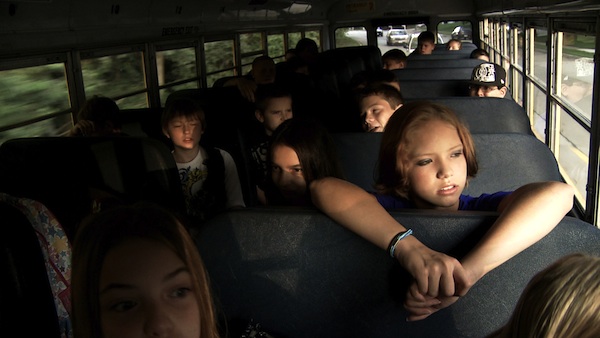Arts & Entertainment
Showdown over an ‘R’ rating
New documentary on bullying leads lesbian teen on a mission

Katy Butler, 17, launched a Change.org petition to change the rating for the upcoming documentary “Bully” and was in D.C. last week to bring attention to her cause.
“When I saw this new movie was coming out, I thought it was so awesome, because it was about bullying and had such a great message, and then I saw that it was rated ‘R’ … it’s missing the entire target audience of the film, which is the middle and high school students,” Butler says about why she started the petition.
Filmed over the 2009-10 school year, “Bully,” directed by Lee Hirsch, follows three students who have been bullied, including one who brought a gun to school and is now in juvenile detention awaiting the outcome of her case, and two sets of parents whose sons committed suicide after being bullied.
The film’s website, thebullyproject.com, states that more than 13 million American kids will be bullied this year and three million students are absent each month because they do not feel safe in school. A disproportionate number of them are LGBT.
According to filmratings.com, a website the Motion Picture Association of America links to, “Bully” received an ‘R’ rating for “some language.” The word “fuck” is used multiple times in the film.
According to the MPAA’s classification and rating rules effective, Jan. 1, 2010, “a motion picture’s single use of one of the harsher sexually derived words … initially requires at least a PG-13 rating. More than one such expletive requires an R rating, as must even one of those words used in a sexual context.”
One of the complaints about the rating is the difficulty pre-teens and most teenagers will have in seeing the film. While an R rating does not keep them from seeing the movie altogether, it does restrict when they can see it, since they will need a parent with them.
It is also more difficult to get schools to show R-rated films, as it requires permission slips to be signed in many school districts.
“The R rating is not a judgment on the value of any movie. The rating simply conveys to parents that a film has elements strong enough to require careful consideration before allowing their children to view it,” Joan Graves, chairman of the classification and rating administration, said in a statement released after receiving the petition.
Butler, who came out as a lesbian in middle school, has been the victim of bullying herself.
“My school didn’t really like that, they called me names … pushed me into lockers and into walls, they ended up slamming my hand into my locker and breaking my finger,” Butler says.
Some have asked why the filmmakers don’t just remove the scenes with the expletives, or censor just the word, since many say if the word was used more sparingly, the film would have received a PG-13 rating, but Butler doesn’t think that would help matters.
“They can’t take out the word, it won’t have the same message. It won’t have the same effect on the kids, parents and teachers who see this movie,” Butler says. “Those are the words that kids used everyday in school to bully each other … no one goes into schools and takes out those words.”
The MPAA also hosted a screening with D.C.-area principals and educators on March 15. The screening was followed by a panel discussion on the challenges educators face in dealing with bullying and how to best ensure that students feel safe when they are in school.
MPAA Chairman Chris Dodd (a former U.S. senator), “Bully” distributor Harvey Weinstein, “Bully” director Lee Hirsch, D.C. Public Schools Chancellor Kaya Henderson and Joseph Wright, senior vice president and head of the Child Health Advocacy Institute at Children’s National Medical Center in Washington, were on the panel.
As of Tuesday afternoon, Butler’s petition had garnered about 439,000 signatures.
Graves’s statement said that the MPAA shares Butler’s goal of highlighting the problems with bullying.
“Katy Butler’s efforts in bringing the issue of bullying to the forefront of a national discussion in the context of this new film are commendable and we welcome the feedback about this movie’s rating,” Graves said in the statement. “We hope that her efforts will fuel more discussion among educators, parents and children.”
Butler has met with the head of the ratings board, when she hand delivered the signed petitions.

Katy Butler was in Washington last week to encourage the MPAA to reconsider its R rating for the new documentary ‘Bully.’ (Blade photo by Michael Key)
Butler’s efforts to change the rating have been noticed by many, including Ellen DeGeneres, who had Butler on her talk show and has asked her viewers to follow her lead and sign the petition.
“Ellen is wonderful, she is one of my roles models,” Butler says of the comedian. “I definitely couldn’t be doing what I’m doing right now without her.”
DeGeneres is not the only celebrity to push for the MPAA to change the rating. New Orleans Saints quarterback Drew Brees has Tweeted for his followers to sign the petition. A bipartisan group of 26 members of Congress has thrown its support behind the petition.
Younger celebrities, such as Justin Beiber and Demi Lovato, have also been pushing for people to sign the petition, Tweeting about it to their many followers.
“I think [Bieber and Lovato] especially are hitting the preteen, middle school age group because those are their fans,” Butler says. “If your role model is supporting something as important as bullying, then a lot of the time, these kids are going to look at it too.”
Butler will receive a special award, presented by Harvey Weinstein, whose production company is releasing the film, at GLAAD’s 23rd annual Media Awards in New York City on Saturday.
“The MPAA made a mistake in restricting this film to adult audiences. Everyone — young and old alike — needs to see this film and the devastating impact that bullying can have on today’s young people,” says GLAAD spokesperson Herndon Graddick. “Katy has bravely used her voice to take a stand and has inspired countless Americans, including so many members of Congress and public figures, to show their support for the safety of all our children.”
All the advocacy toward changing “Bully’s” rating is just the beginning for this high school junior. Butler plans on studying political activism once she finishes high school. She would like to attend the University of Michigan or a school in the D.C., New York or Chicago areas.
“Bully” opens in theaters in New York and Los Angeles on March 30 and D.C. and other cities on April 13.
Theater
José Zayas brings ‘The House of Bernarda Alba’ to GALA Hispanic Theatre
Gay Spanish playwright Federico García Lorca wrote masterpiece before 1936 execution

‘The House of Bernarda Alba’
Through March 1
GALA Hispanic Theatre
3333 14th St., N.W.
$27-$52
Galatheatre.org
In Federico García Lorca’s “The House of Bernarda Alba,” now at GALA Hispanic Theatre in Columbia Heights, an impossibly oppressive domestic situation serves, in short, as an allegory for the repressive, patriarchal, and fascist atmosphere of 1930s Spain
The gay playwright completed his final and arguably best work in 1936, just months before he was executed by a right-wing firing squad. “Bernarda Alba” is set in the same year, sometime during a hot summer in rural Andalusia, the heart of “España profunda” (the deep Spain), where traditions are deeply rooted and mores seldom challenged.
At Bernarda’s house, the atmosphere, already stifling, is about to get worse.
On the day of her second husband’s funeral, Bernarda Alba (superbly played by Luz Nicolás), a sixtyish woman accustomed to calling the shots, gathers her five unmarried daughters (ages ranging from 20 to 39) and matter-of-factly explain what’s to happen next.
She says, “Through the eight years of mourning not a breeze shall enter this house. Consider the doors and windows as sealed with bricks. That’s how it was in my father’s house and my grandfather’s. Meanwhile, you can embroider your trousseaux.”
It’s not an altogether sunny plan. While Angustias (María del Mar Rodríguez), Bernarda’s daughter from her first marriage and heiress to a fortune, is betrothed to a much younger catch, Pepe el Romano, who never appears on stage, the remaining four stand little chance of finding suitable matches. Not only are they dowry-less, but no men, eligible or otherwise, are admitted into their mother’s house.
Lorca is a literary hero known for his mastery of both lyrical poetry and visceral drama; still, “Bernarda Alba’s” plotline might suit a telenovela. Despotic mother heads a house of adult daughters. Said daughters are churning with passions and jealousies. When sneaky Martirio (Giselle Gonzáles) steals the photo of Angustias’s fiancé all heck kicks off. Lots of infighting and high drama ensue. There’s even a batty grandmother (Alicia Kaplan) in the wings for bleak comic relief.
At GALA, the modern classic is lovingly staged by José Zayas. The New York-based out director has assembled a committed cast and creative team who’ve manifested an extraordinarily timely 90-minute production performed in Spanish with English subtitles easily ready seen on multiple screens.
In Lorca’s stage directions, he describes the set as an inner room in Bernarda’s house; it’s bright white with thick walls. At GALA, scenic designer Grisele Gonzáles continues the one-color theme with bright red walls and floor and closed doors. There are no props.
In the airless room, women sit on straight back chairs sewing. They think of men, still. Two are fixated on their oldest siter’s hunky betrothed. Only Magdelena (Anna Malavé), the one sister who truly mourns their dead father, has given up on marriage entirely.
The severity of the place is alleviated by men’s distant voices, Koki Lortkipanidze’s original music, movement (stir crazy sisters scratching walls), and even a precisely executed beatdown choreographed by Lorraine Ressegger-Slone.
In a short yet telling scene, Bernarda’s youngest daughter Adela (María Coral) proves she will serve as the rebellion to Bernarda’s dictatorship. Reluctant to mourn, Adela admires her reflection. She has traded her black togs for a seafoam green party dress. It’s a dreamily lit moment (compliments of lighting designer Hailey Laroe.)
But there’s no mistaking who’s in charge. Dressed in unflattering widow weeds, her face locked in a disapproving sneer, Bernarda rules with an iron fist; and despite ramrod posture, she uses a cane (though mostly as a weapon during one of her frequent rages.)
Bernarda’s countenance softens only when sharing a bit of gossip with Poncia, her longtime servant convincingly played by Evelyn Rosario Vega.
Nicolás has appeared in “Bernarda Alba” before, first as daughter Martirio in Madrid, and recently as the mother in an English language production at Carnegie Melon University in Pittsburgh. And now in D.C. where her Bernarda is dictatorial, prone to violence, and scarily pro-patriarchy.
Words and phrases echo throughout Lorca’s play, all likely to signal a tightening oppression: “mourning,” “my house,” “honor,” and finally “silence.”
As a queer artist sympathetic to left wing causes, Lorca knew of what he wrote. He understood the provinces, the dangers of tyranny, and the dimming of democracy. Early in Spain’s Civil War, Lorca was dragged to the the woods and murdered by Franco’s thugs. Presumably buried in a mass grave, his remains have never been found.
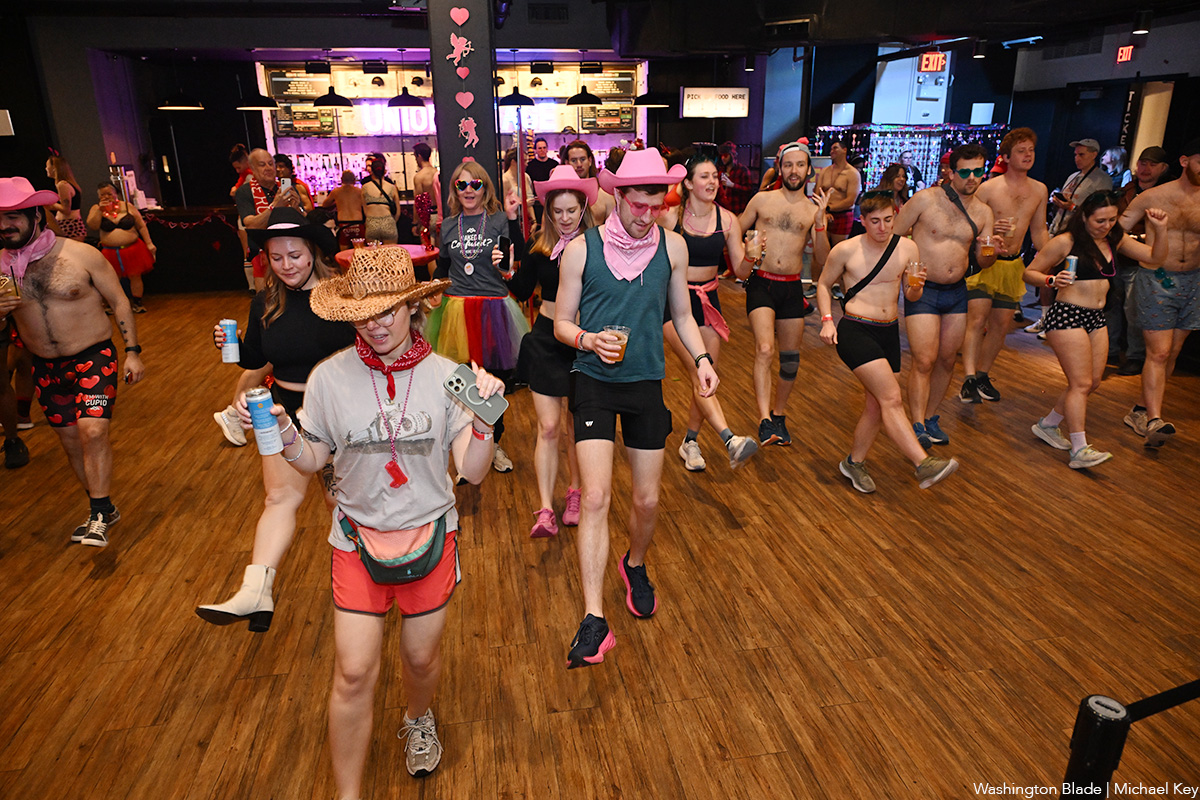
Cupid’s Undie Run, an annual fundraiser for neurofibromatosis (NF) research, was held at Union Stage and at The Wharf DC on Saturday, Feb. 21.
(Washington Blade photos by Michael Key)
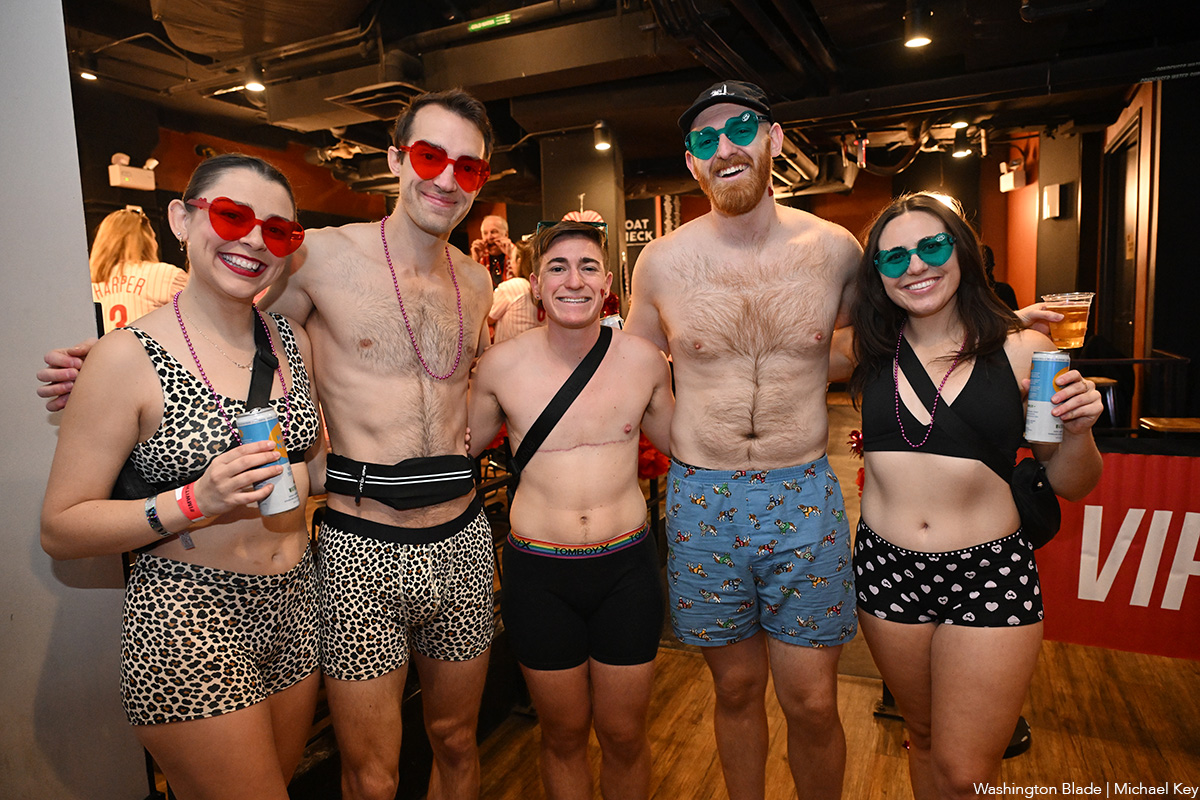
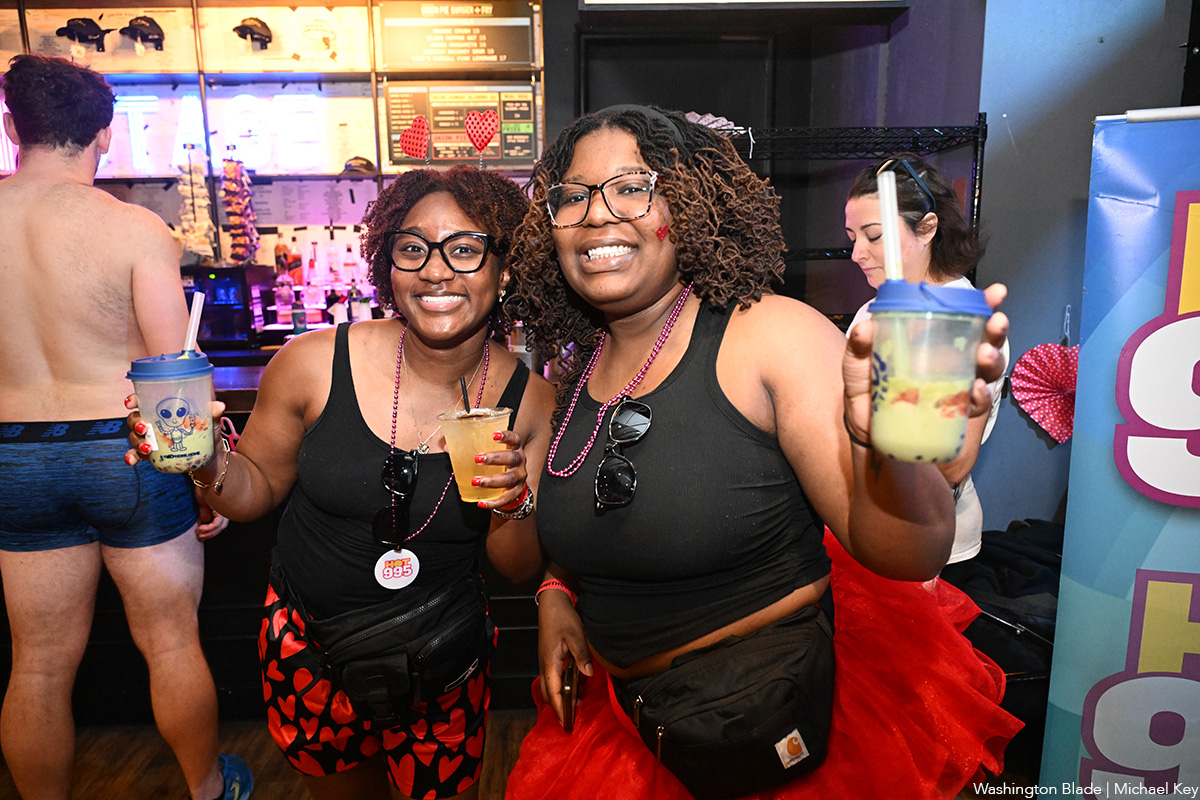
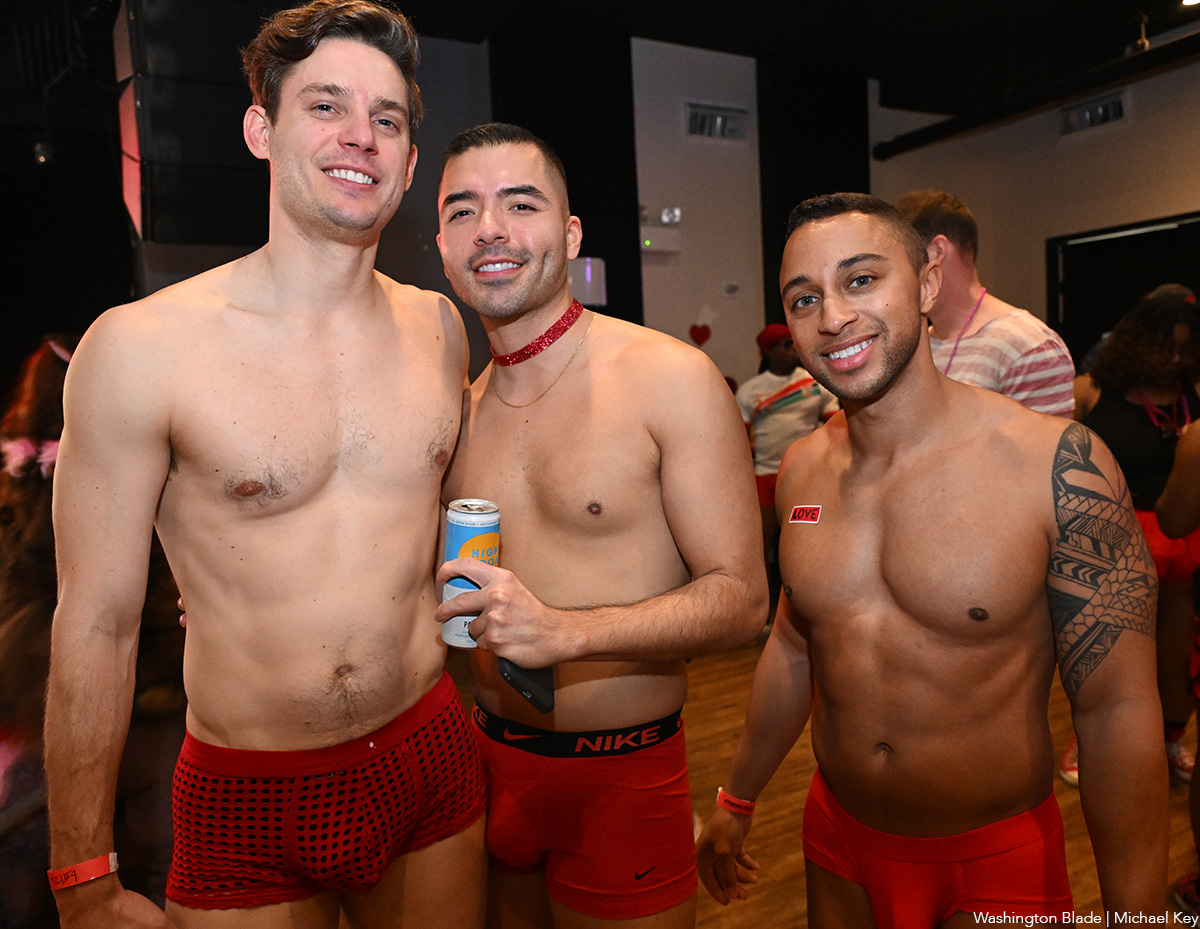
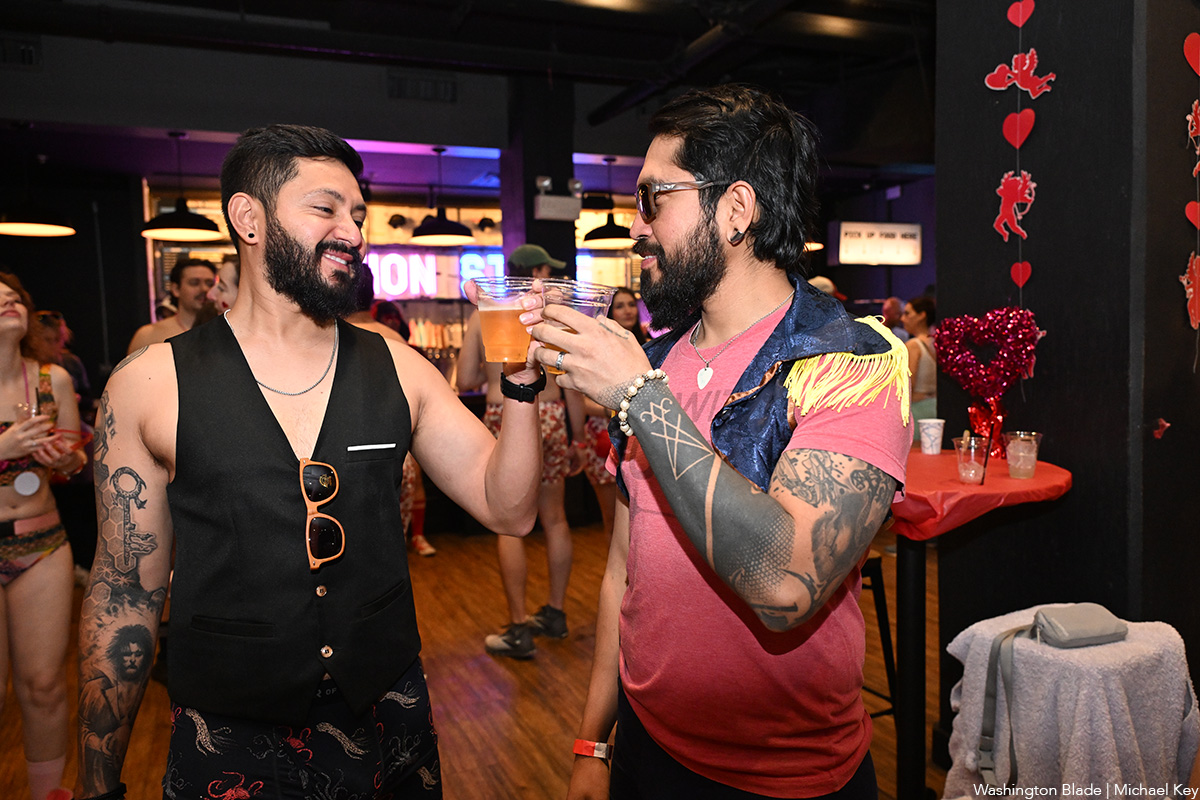
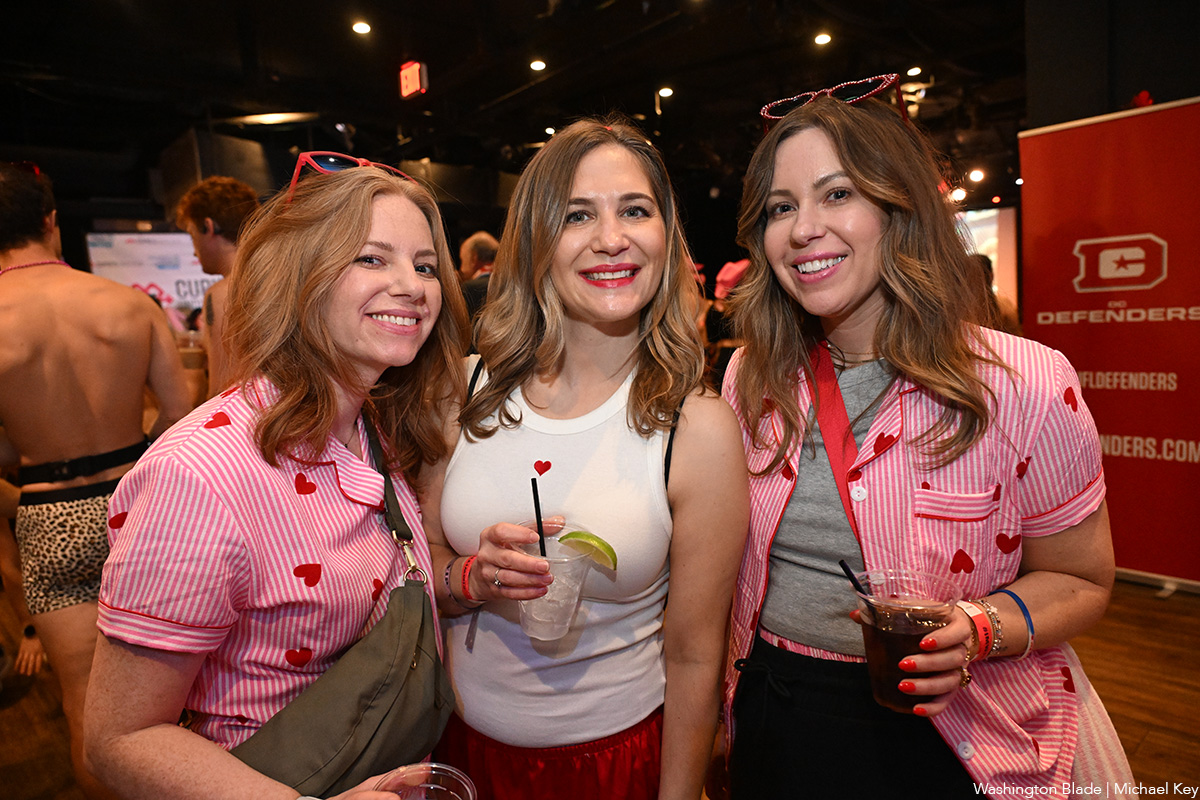
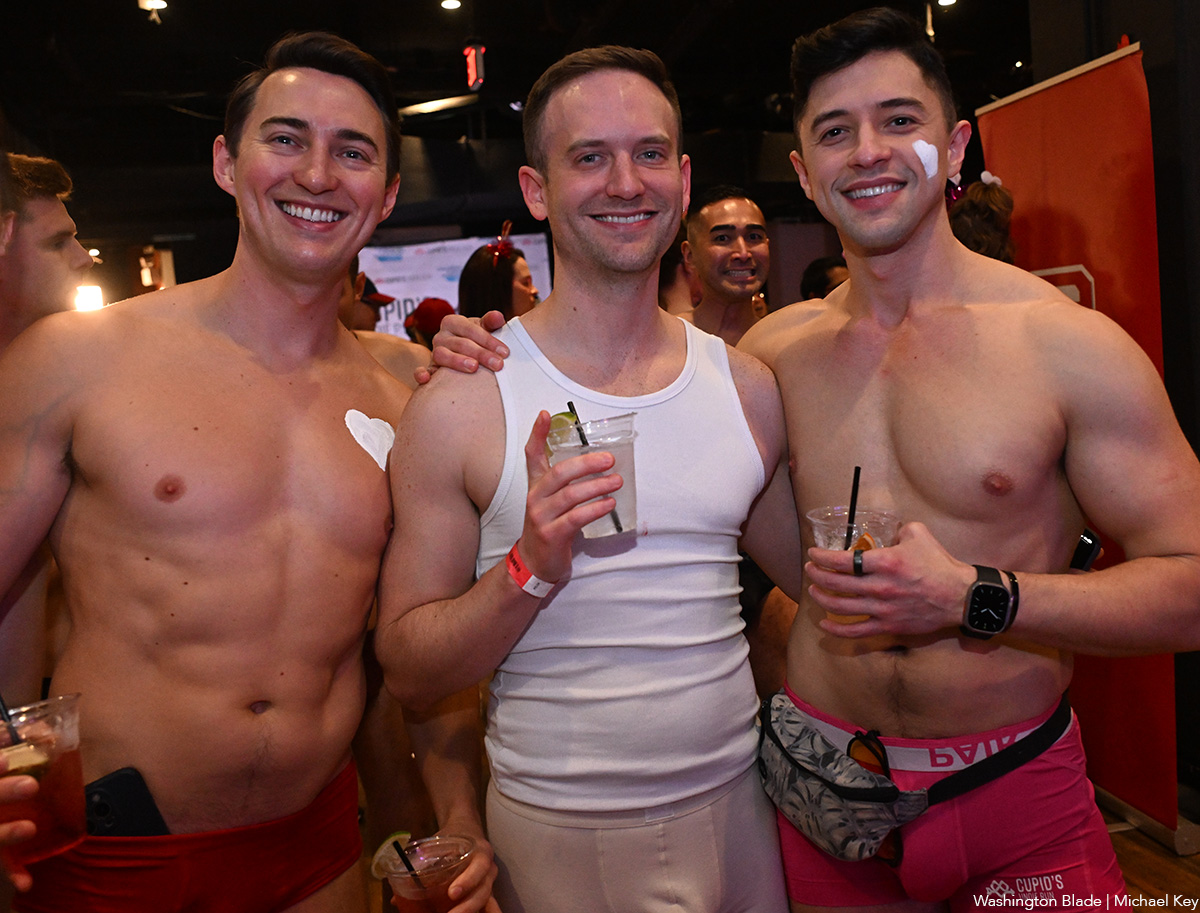
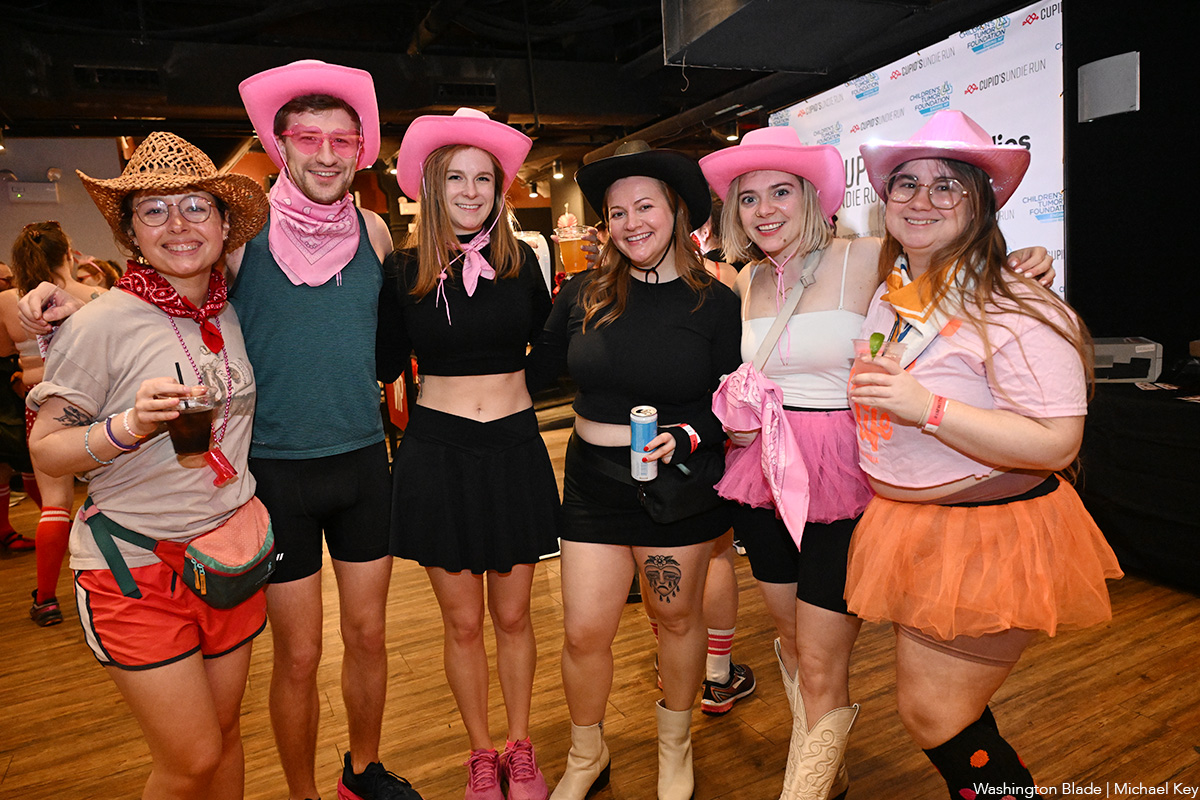
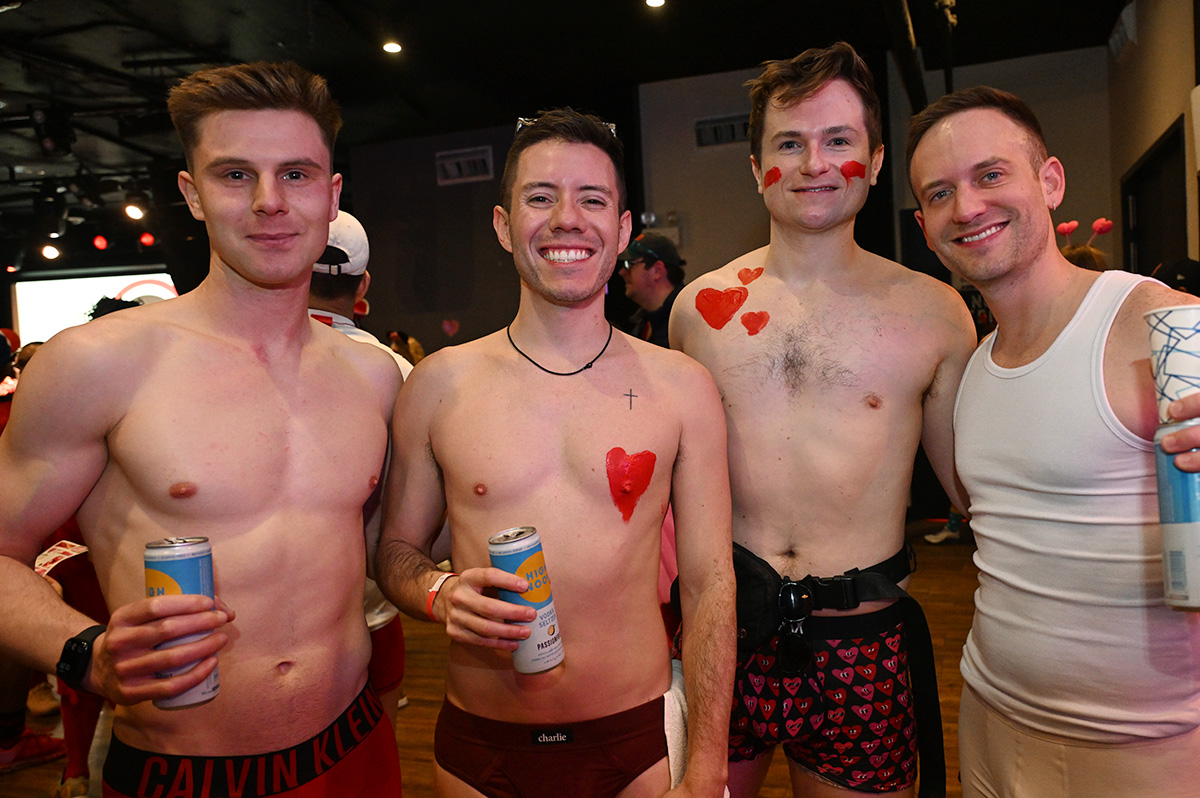
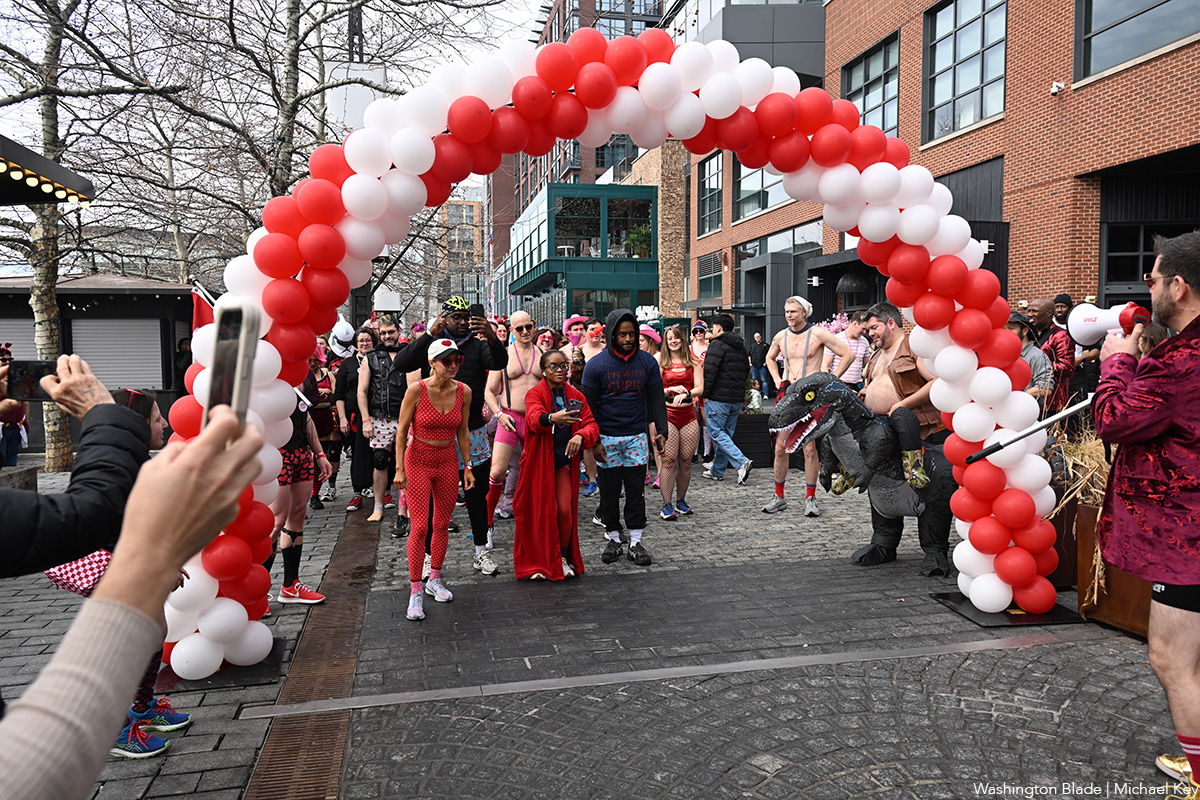
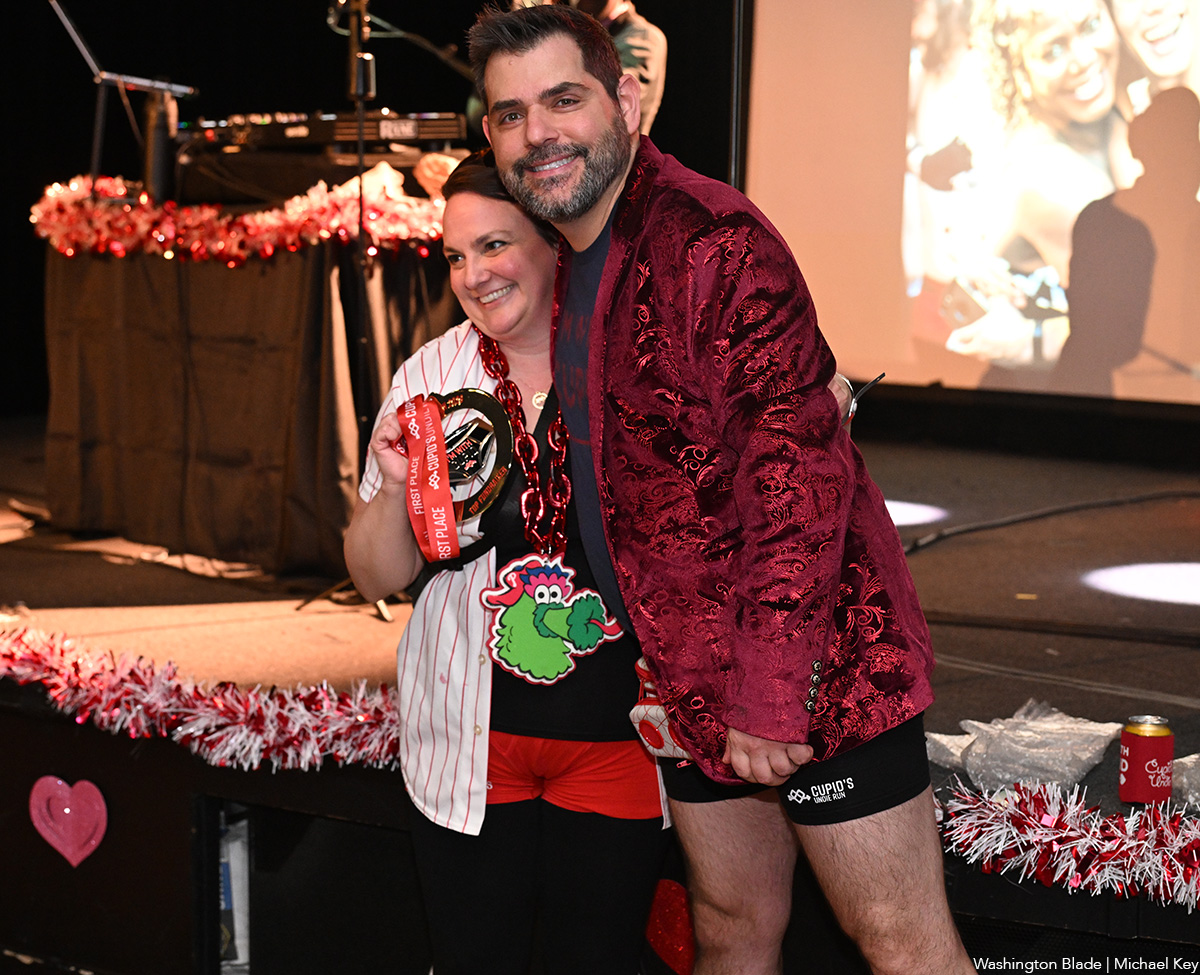
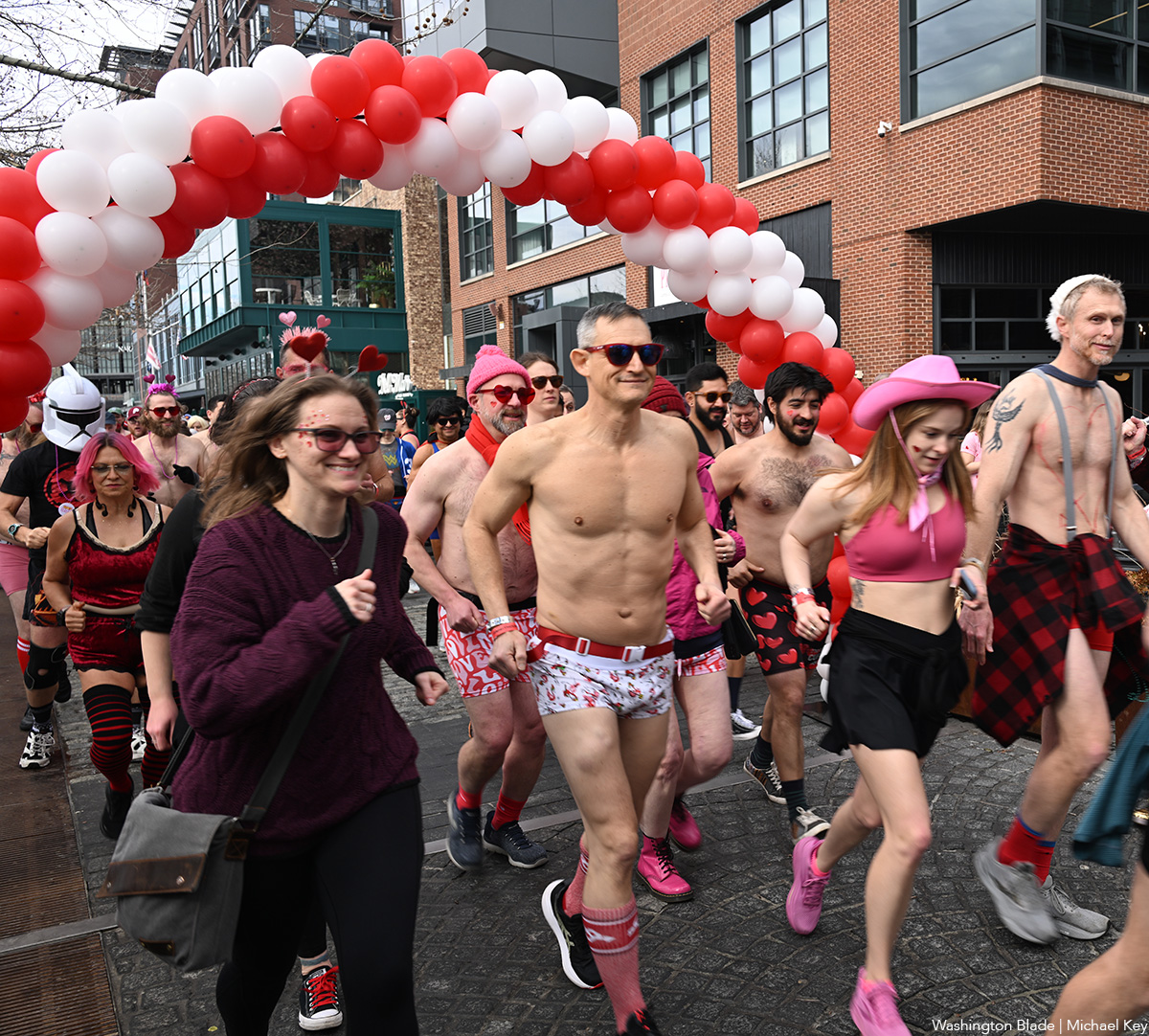
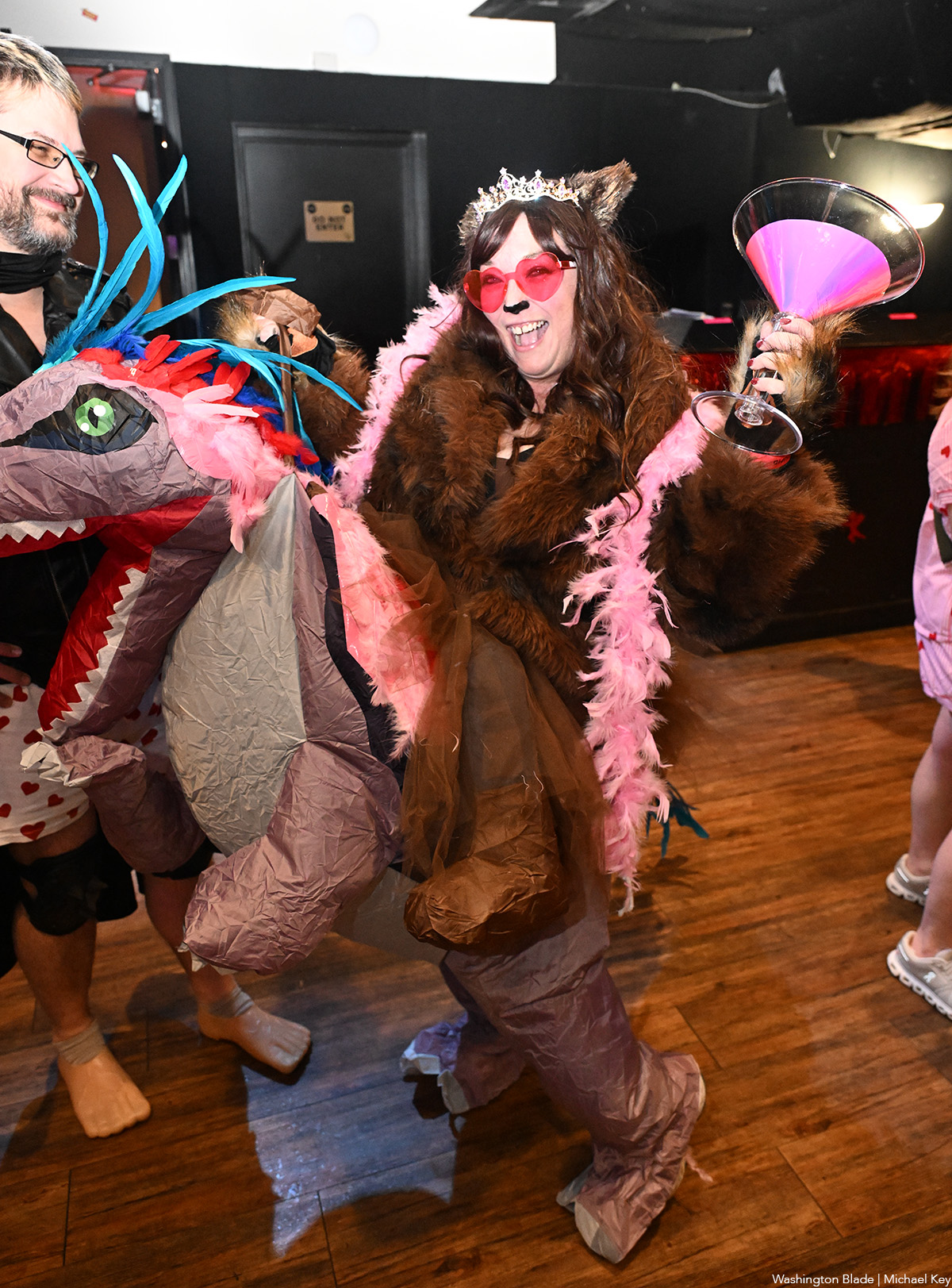
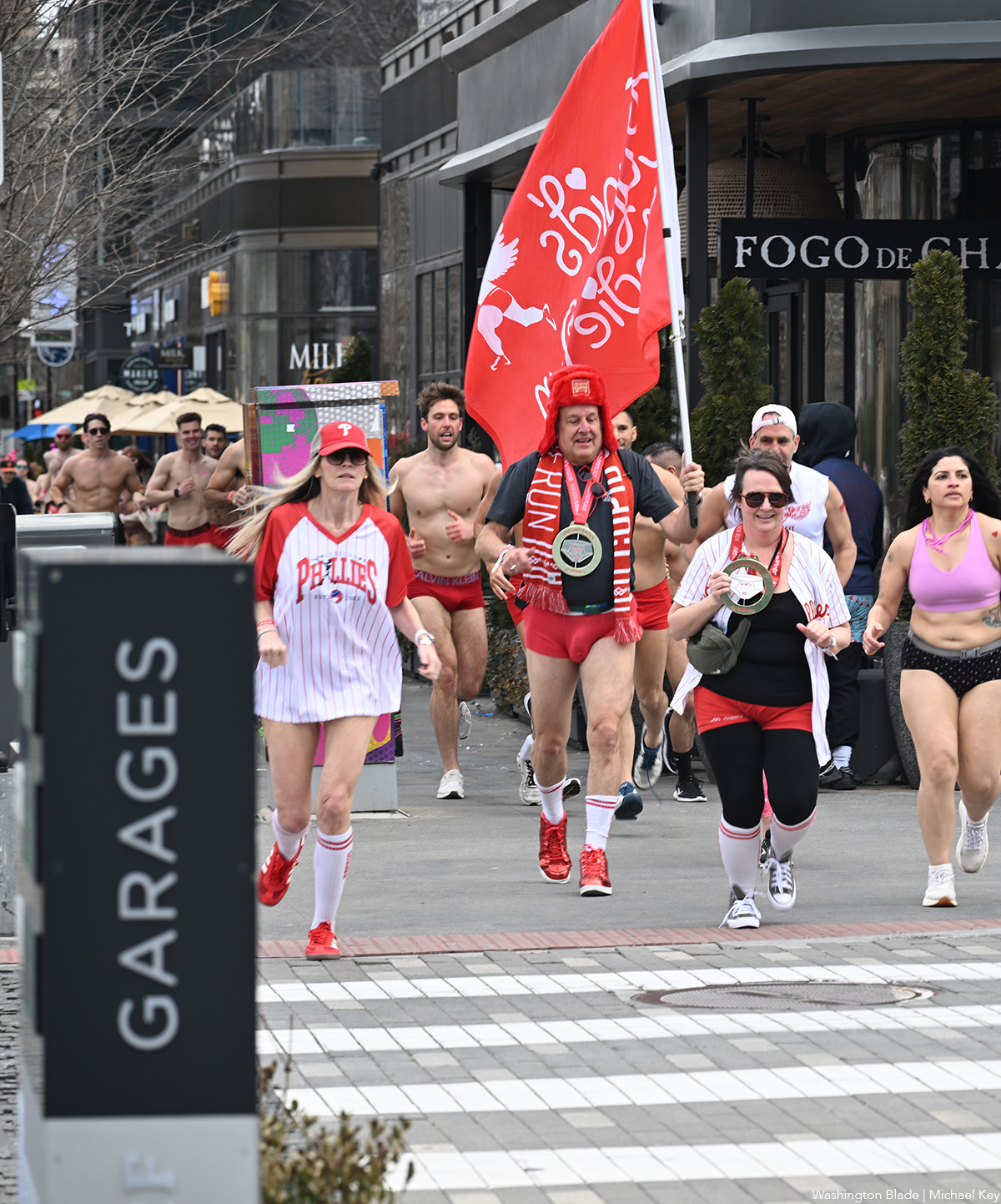

Sweat DC is officially expanding to Shaw, opening a new location at 1818 7th St., N.W., on Saturday, March 28 — and they’re kicking things off with a high-energy, community-first launch event.
To celebrate, Sweat DC is hosting Sweat Fest, a free community workout and social on Saturday, March 14, at 10 a.m. at the historic Howard Theatre. The event features a group fitness class, live DJ, local food and wellness partners, and a mission-driven partnership with the Open Goal Project, which works to expand access to youth soccer for players from marginalized communities.
For more details, visit Sweat DC’s website and reserve a spot on Eventbrite.
-

 Massachusetts5 days ago
Massachusetts5 days agoEXCLUSIVE: Markey says transgender rights fight is ‘next frontier’
-

 Opinions4 days ago
Opinions4 days agoGay Treasury Secretary’s silence on LGBTQ issues shows he is scum
-

 U.S. Military/Pentagon4 days ago
U.S. Military/Pentagon4 days ago4th Circuit rules against discharged service members with HIV
-

 New York4 days ago
New York4 days agoLawsuit to restore Stonewall Pride flag filed

